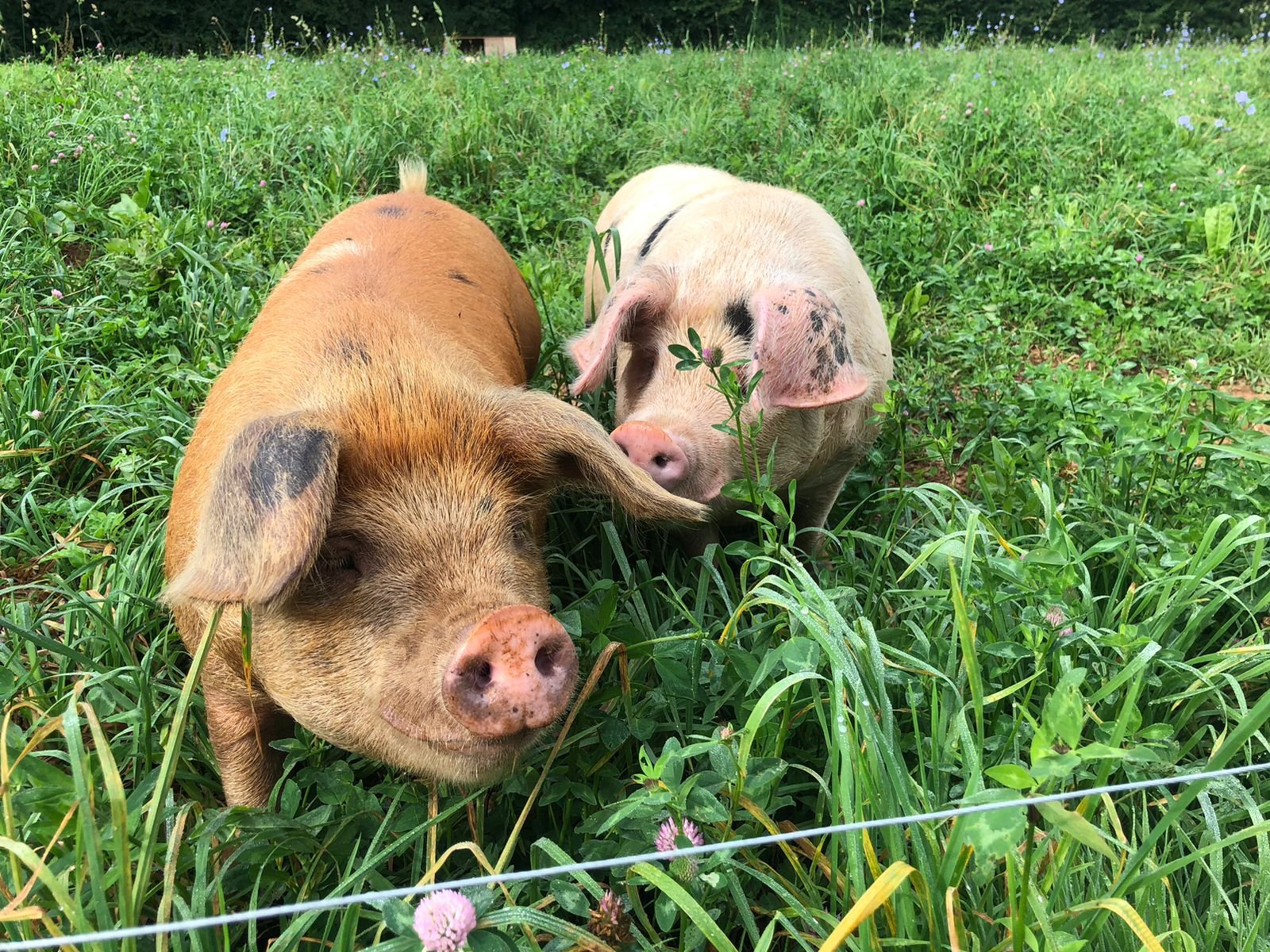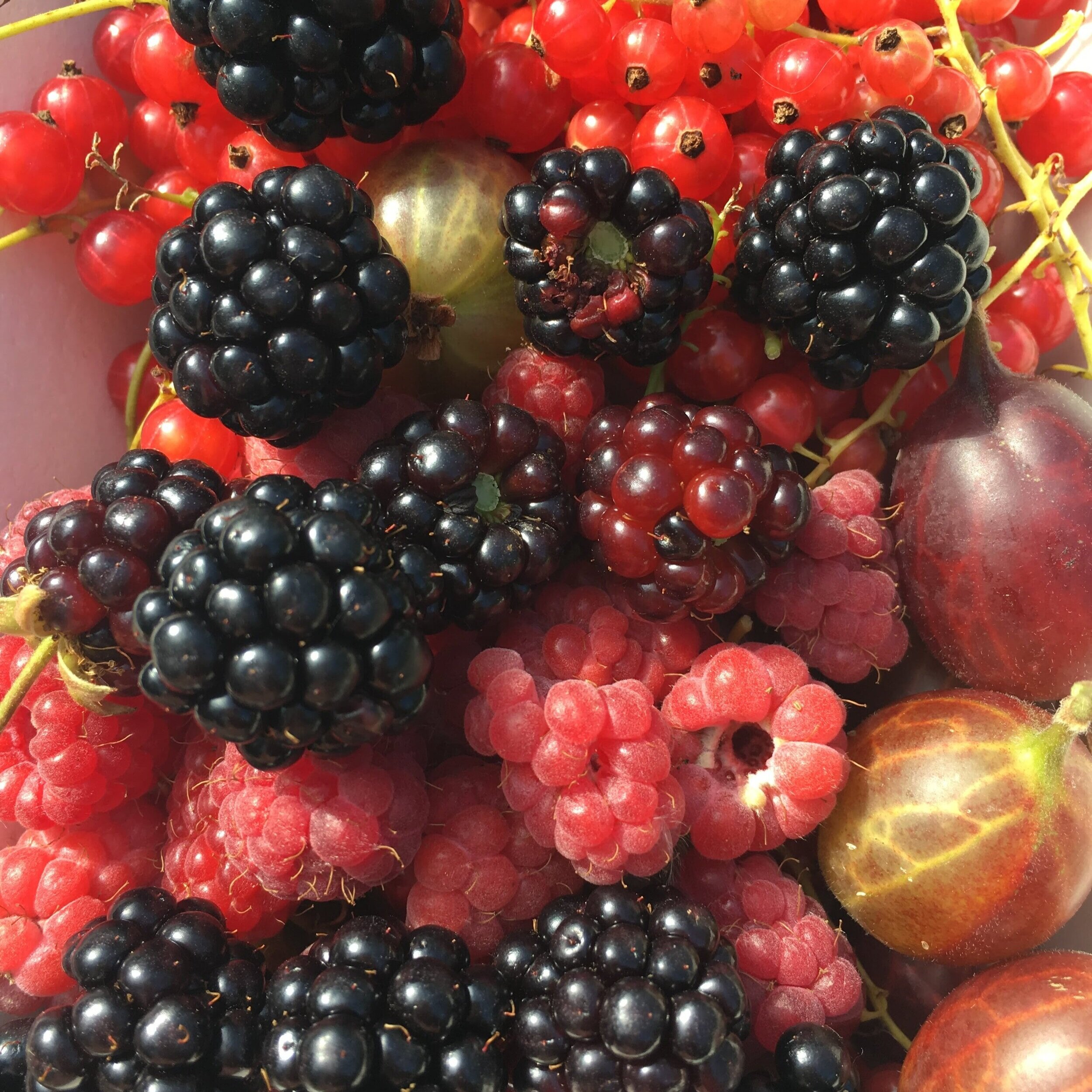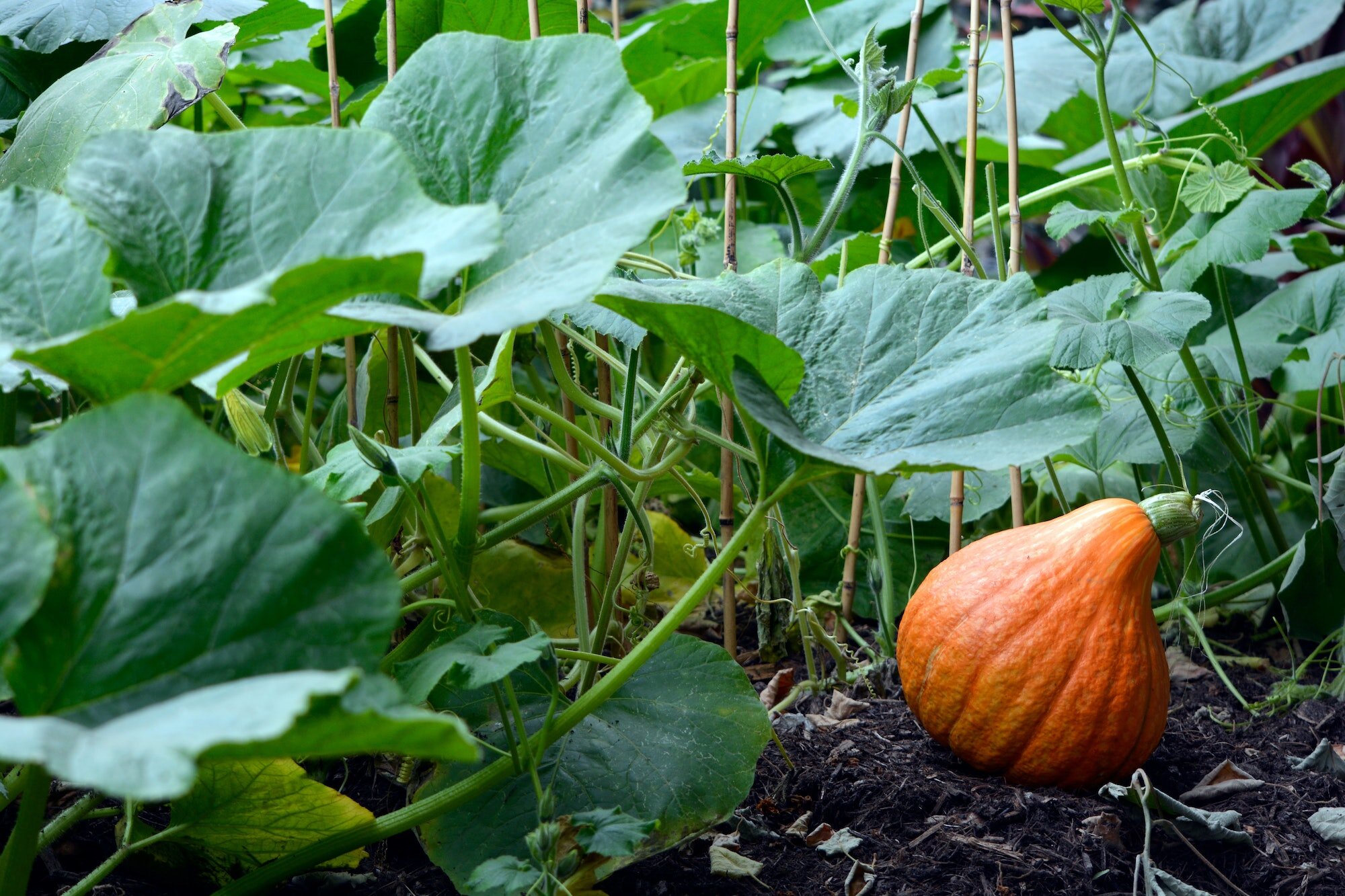
About The Farm
Huxhams Cross Farm lies on the edge of the Dartington Hall estate, just 10 minutes away from Totnes, South Devon. It was bought by the Biodynamic Land Trust in 2015 to be held in trust for sustainable food production in perpetuity. It has 150 “shareholders” that have withdraw-able shares in the farm. Huxhams Cross Farm is 13 hectares ( 34 acres) and stretches between Huxhams Cross and Week and is made up of 6 fields. These consist of two wetland meadows, 1 meadow and 3 arable fields that were done to barley and industrial agriculture for 40 years.
The Apricot Centre took on the first tenancy for the farm in September 2015. We carried out a Permaculture design for the farm in 2014, in collaboration with the community of shareholders, and the local community. What we designed was a farm that aims to;
Sequester carbon and be low in fossil fuel usage
Be resilient to Climate change
Support Biodiversity
Produce delicious healthy food for local people
Offer a Wellbeing service for Children and Families .
The arable fields we put down to deep rooting green manures for the first two years to recover, and 3000 agroforestry and fruit trees were planted. The farm achieved full Biodynamic Status in 2018.
The farm produces the following that are all registered Biodynamic;
A wide range of all year round vegetables on a field scale and in polytunnels
Soft and Top Fruit
Small scale grain and flour
Cut Flowers
Preserves (organic)
Farm to Door
Vegetables
We have 12 acres of south-facing fields for vegetables. This is sub-sectioned using agroforestry rows of hazel planted on the contour at 28m spacings.
The hazel provides wind shelter, functional biodiversity habitats, and slows down the movement of water through the field. It also creates a more human scale space to work in, however, it makes it slightly more challenging for Dave our veg grower! We have 8 polytunnels extending our growing season. We are growing a wider range of vegetables, with diversity at the core. WE grow 50 types of vegetables in total, often of multiple varieties. Why grow one type of bean when you can grow 4 or 5? We are trialling dried beans this year.
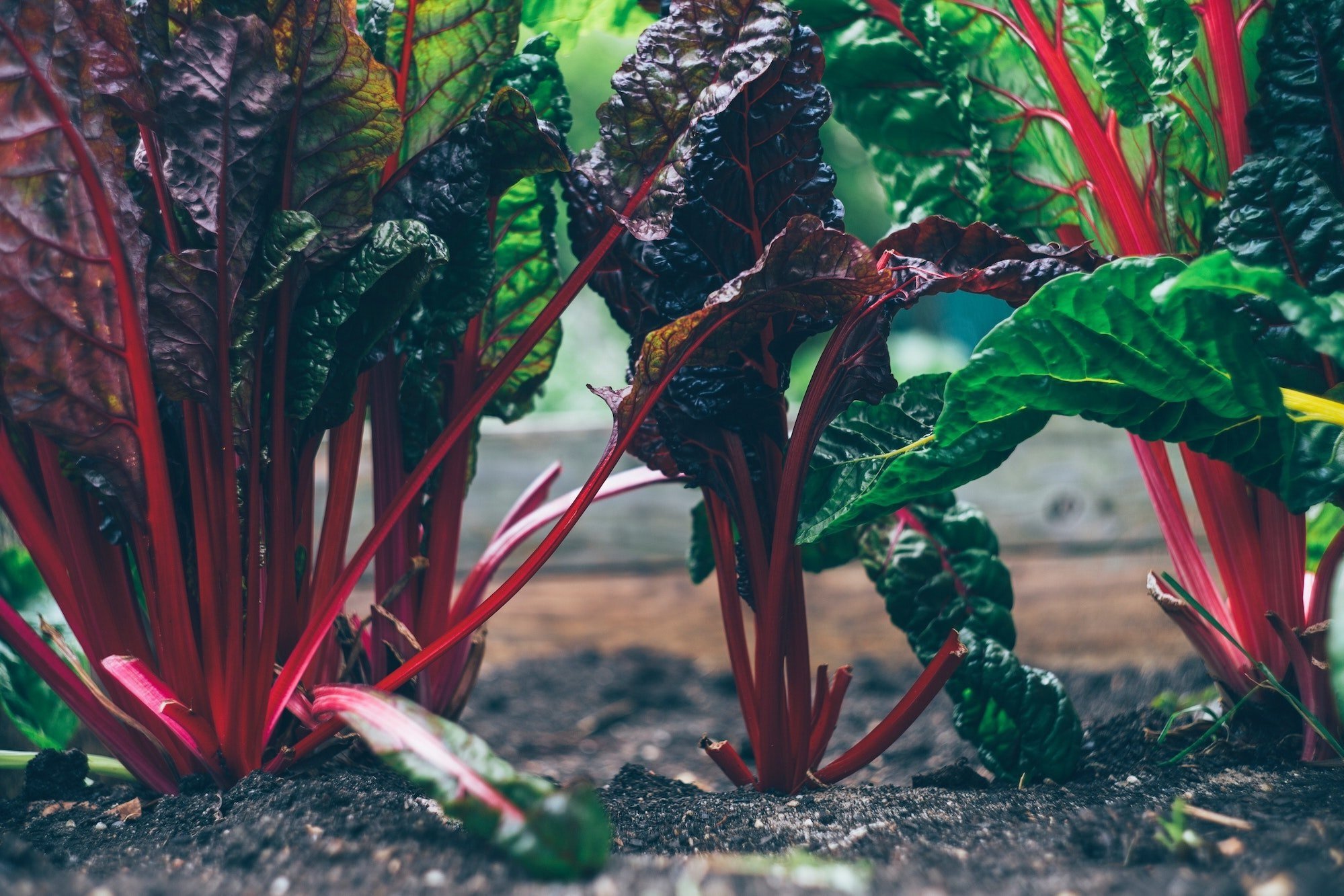
Fruit
We have planted an acre of soft fruit consisting of:
- Rhubarb
- Strawberries
- Raspberries
- Blackberries
- Blackcurrants
- Gooseberries
- Grapes
- Honeyberries
These are harvested between May to July and are sold via our local fruit, veg and flower delivery round or on our market stall in Totnes. The gluts are frozen and made into delicious jams.
We have planted 1300 fruit trees and these should come into full cropping in 2022. Half of these are in Broadlears Agroforestry field on Dartington Hall Estate.
These are:
Peaches (in the poly tunnels); Apricots - optimistic I know! Figs - also optimistic! Cherries; plums; damsons; pears; apples; quince and a few medlars
Chickens & Organic Eggs
Our flock of chickens are housed in mobile chicken houses, within an electric fence system. They are moved every week keeping them on fresh grasses and herbal leys.
In the summer months they move through the vegetable fields and orchards clearing up when a crop has finished and leaving their fertility behind them. They are at a low stocking density, feeding on our grass and clover ley, topped up with our homegrown grains, peas and beans, occasionally topped up with organic layers pellets. We do not use antibiotics or medicines in our feed.
Organic Pork
In 2023 we embarked on a new venture to bring more diversity onto the farm and add another income generating activity. We bought in 6 newly weaned piglets that were kept on our herb rich pasture which we grow in between crops to build the fertility of the soil. They rooted it around a bit but we moved them along each month to limit the damage to the pasture and to make sure they always had fresh vegetation to eat. Keeping pigs also made sense to us because they can eat our grain by products, such as wheat middlings, along with grain not fit for human consumption. We add peas and beans to their diet to keep protein up but we don't feed them any soya since it is often grown in unsustainable farming systems in other parts of the world. An added and unexpected benefit of keeping the pigs is that they are now the most popular attraction for the multitude of groups that visit the farm! Since September 2023 we have been able to provide a range of Organic pork produce to deliver to the local community. As of November 2023, we now have our second group of weaned piglets to start the process all over again.
Organic Beef
In Spring 2023 we bought our first cattle from a biodynamic micro dairy. Cattle have an important presence on biodynamic farms and can graze the herb and clover rich pasture rather than having to burn diesel to cut and mulch it using a tractor. They also add to the biodiversity of our 10 acres of species rich wet meadow by conservation grazing it in the second half of the year. This reduces competition from grasses and allows the orchids and other flowering plants to thrive. All our cattle are purely pasture fed and our Organic Beef has been available since 2024.
Small Scale Grain
We grow 2 hectares (5 acres) of grain every year. This is a “Population” called “YQ'' which stands for “Yield and Quality”. This was bred by Martin Wolfe in the 1990s is an “out bred” resilient variety suitable for organic low input systems. It is very genetically diverse. It was created by crossing 20 plus varieties of modern wheats that excel at both yield and quality hence the name. Over the years we have grown it on Huxhams Cross Farm it has adapted to the heavy soils and damp climate, giving us consistent yields of 2.5 tonnes per hectare ( 1 tonne per acre). This grain is of exceptionally high flavour.
This is milled into flour by our sister company Dartington Mill and sold via “Reclaim the Grain” packaging. It is fully Biodynamic. It is milled fresh weekly and has an exceptional flavour. It is naturally low in gluten and makes good sourdough bread. If mixed with a higher gluten flour it also makes good loaves. It is excellent for cakes and pastries. By milling fresh flour at low temperatures the nutritional quality of the flour is exceptionally high. We sell both wholemeal and white flour. It is sold in 1 kg - 12.5 kg bags. We supply the home baker and small scale bakeries or caterers.
The wheat is on a two year rotation. It is followed by deep rooting herbal lays and grazed by the hens and our two cows.
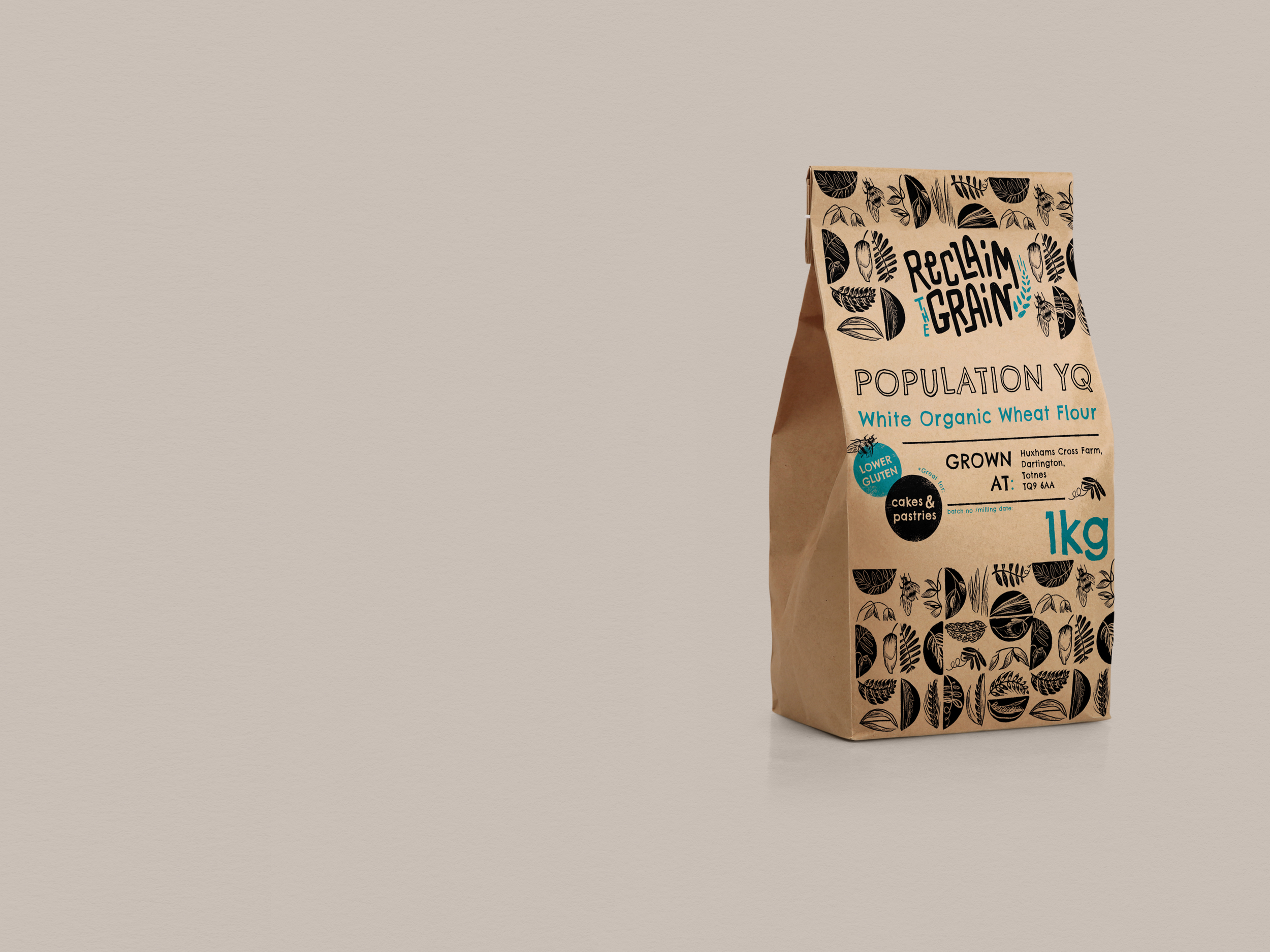
Cut Flowers
In the Spring to summer months March - October we produce fresh flowers that are arranged in brightly mixed bunches and sold via our local veg delivery service or on Totnes Market. These flowers attract bees and butterflies and numerous predatory insects that eat the pests on our crops. They look lovely as you enter the farm and bring smiles to lots of faces.
Some of the flowers are also edible and end up in our colourful salad bags or are dried to bring a flash of colour to the winter months.
Preserves
All farms have gluts. Our aim is not to waste any of our produce so we have a small kitchen and processing kit that can turn any surplus into preserves.
We make jams using 60% of our own fruit and 40% of organic sugar. This is raw cane sugar that is imported from Brazil, it is the least processed sugar available. This allows the full flavour of the fruit to come through in the jams.
The only fruit we buy is Seville Oranges for our Marmalade.
The chutneys and relishes are made from grade out or gluts of vegetables and are constantly changing. We make them using organic apple cider vinegar, organic sugar, and organic lemon juice.
Cordials are made from a “wild harvest” on our farm. We make Elderflower, Elderberry and Meadowsweet cordial This is sweetened with organic sugar and / or organic apple concentrate.
These are all registered as “Organic” as we cannot source Biodynamic sugar.
We make apple juice from our own fruit but also from collecting local surplus gluts of apples and pears and pressing it. The juice is sold as non organic for this reason. We take care to check that the fruit we are collecting has not been sprayed, but none of it is registered.
All of our products are made in small batches. We don't use any preservatives so once opened all of our products need to be kept in the fridge.




